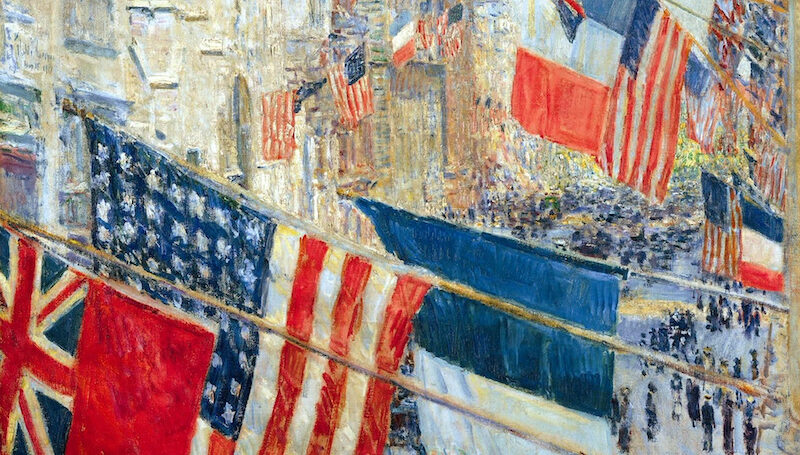Published on The Daily Caller
A primer: Leo Strauss was a German-born political philosopher who died in 1973 and caused the U.S.-led invasion of Iraq in 2003. Sound strange? Well, a number of academics – and other unserious individuals – have managed to build entire careers on that very conjecture. Of course, given the type of “scholarship” rewarded with tenure in the Ivory Tower, it’s wise to approach the claim with, let’s say, more than just a degree of skepticism.
Despite the slings and arrows, Strauss was a great intellectual, and his great contribution to the study of classical political philosophy was this: He demonstrated that thinkers in less enlightened times sometimes concealed ideas within their texts. Why? Because certain ideas were just too dangerous to divulge. Unless one had a death wish, one couldn’t run through the streets of Athens proclaiming that the emperor was a tyrant. Similarly, one couldn’t simply bust through the doors of the synagogue in Jerusalem declaring that the God of the Bible was imperfect.
In turn, Strauss posited, thinkers hid ideas below the surface of their texts. The ideas, however, could be uncovered through “close reading” by the elite few trained to discover them – and capable of receiving them. This gave rise to the notion of the “noble lie.” Detractors have since taken this to mean that a handful of students of students of Strauss in powerful positions spread falsehoods about the need for democracy in Iraq to advance a new world order. Perplexed? Join the club. Alas, this is not the place to fully debunk this conspiracy. So on to the story…
I wasn’t feeling well the other night. I buried myself underneath a pile of blankets, turned on the tube, and fell asleep on the couch. Just before slipping into a feverish, unconscious state, Bill O’Reilly was interviewing Donald J. Trump.
I then experienced an incredibly lucid dream. I was showing Trump around a think tank in downtown Washington. For the most part, it was just the two of us, though there were a handful of other employees walking around. I had been afforded this “honor,” though I’m not sure why. At some point, I thought to myself, “Wow, compared to what I’ve seen on television, Trump’s a really nice, thoughtful, intelligent guy.”
We then take an elevator up one floor, and approach a beautiful, early-19th century painting of Native Americans canoeing in a wooded area. Without uttering a single word, Trump extends his arm forward and starts tracing shapes overtop the canvas using his index finger. I realize he’s disclosing symbols and patterns embedded by the artist. But, again, he’s doing it silently. He then turns toward me, pats me on the shoulder, and smiles. We walk away.
I immediately wake up. It’s a wee hour in the morning, and while brushing my teeth, I’m jolted out my foggy state. I recalled something Trump had done at an event I attended in early-December. An elderly man in the front row was jeering him. He stopped, and directly addressed the person: “Don’t worry about it…. Relax. If I get in, you’re gonna love me.”
With Colgate foam spilling out of my mouth, this question leapt into my mind: Is Trump a Straussian? Is he an embodiment of the political philosopher’s precept of close reading?
Was he hinting to that person (a plant?) at the event, “Don’t worry, I’m actually a completely sane and capable leader who’s only putting on this schpiel to capture the White House”?
It’s regularly said that politicians act a particular way on the campaign trail to win hearts and minds. For example, Bush wasn’t really that dumb. He was just an actor. The southern drawl, the goofiness – it was simply a ruse. The façade was orchestrated to make him appealing to Middle America, to make him out to be the guy Joe the Plumber would want to have a beer with.
If that’s the case, then Trump’s really taking it to the next level. He’s going Full Machiavelli à la Strauss. He’s playing the American people like a fiddle. He’s doing exactly what’s necessary to triumph, gaining unprecedented support by putting on a show and exploiting deep-seated frustrations. And once in office, he will instantly transform into something else, something far more rational and conventional.
In all seriousness, how are we to reconcile these two portraits of Trump that we’re often presented with? There’s the one we all see in the media and in-person at rallies. Then there’s the very different one passed to us from his family and business leaders who have interacted with him behind closed doors. Really, is it feasible for a man to grow a company’s value by billions of dollars while dissing corporate adversaries as “losers”? When pressed to contemplate, it does seem quite unlikely.
So maybe there are two Trumps. There’s the Trump for mass consumption. Then there’s the Trump for elite consumption. That interjection I personally witnessed was merely one signal among others to the select cadre carefully prepared to accept the Truth, the Truth that all will soon be well.
There is, no doubt, a strong possibility that this is nothing more than fanciful prognosis. The human imagination has always sought additional meaning, wanting, craving belief that there’s more than what meets the eye. Or maybe by revealing the “esoteric” meaning of Trump here, I’m trying to associate him with a reviled school of thought, to stimulate a viral conspiracy theory, thereby bringing about his collapse. Or maybe I have an entirely different motive. Only the initiated will know now. The ignorant multitudes might have to wait until November 9.
